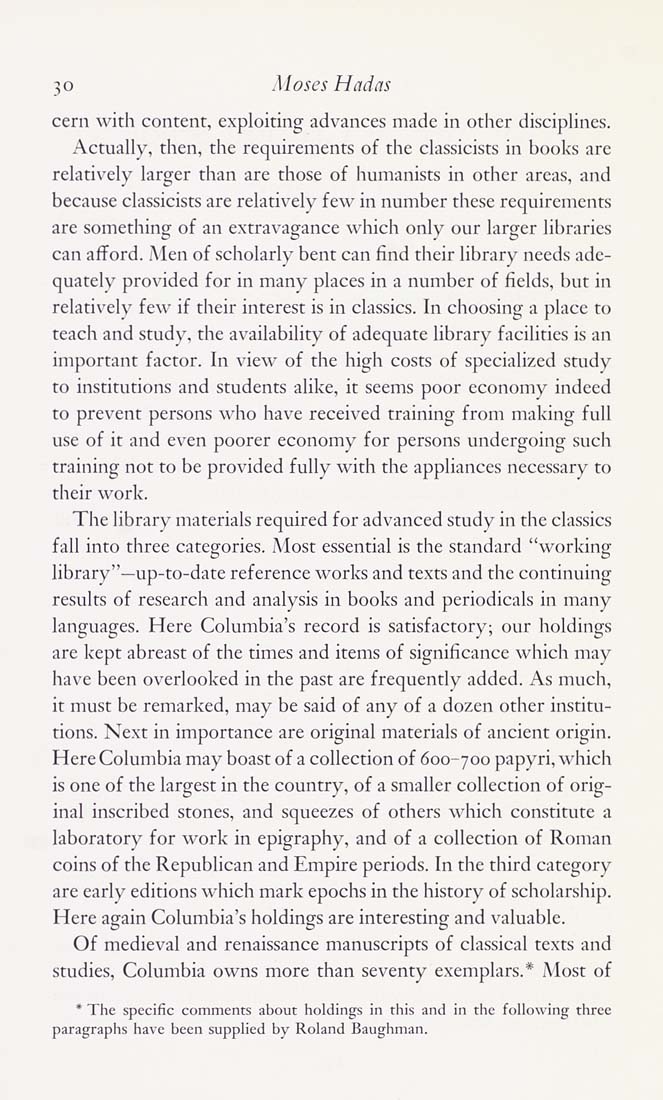Columbia Library columns (v.9(1959Nov-1960May))
(New York : Friends of the Columbia Libraries. )
|
||
|
|
|
|
| v.9,no.3(1960:May): Page 30 |

30 .Moses Hadas cern with content, exploiting advances made in other disciplines. Actually, then, the requirements of the classicists in books are relatively larger than are those of humanists in other areas, and because classicists are relatively few in number these requirements are something of an extravagance which only our larger libraries can afford. Men of scholarly bent can find their library needs ade¬ quately provided for in many places in a number of fields, but in relatively few if their interest is in classics. In choosing a place to teach and study, the availability of adequate library facilities is an important factor. In view of the high costs of specialized study to institutions and students alike, it seems poor economy indeed to prevent persons who have received training from making full use of it and even poorer economy for persons undergoing such training not to be provided fully with the appliances necessary to their work. The library materials required for advanced study in the classics fall into three categories. Most essential is the standard "working library"—up-to-date reference works and texts and the continuing results of research and analysis in books and periodicals in many languages. Here Columbia's record is satisfactory; our holdings are kept abreast of the times and items of significance which may have been overlooked in the past are frequently added. As much, it must be remarked, may be said of any of a dozen other institu¬ tions. Next in importance are original materials of ancient origin. Here Columbia may boast of a collection of 600-700 papyri, which is one of the largest in the country, of a smaller collection of orig¬ inal inscribed stones, and squeezes of others which constitute a laboratory for work in epigraphy, and of a collection of Roman coins of the Republican and Empire periods. In the third category are early editions which mark epochs in the history of scholarship. Here again Columbia's holdings are interesting and valuable. Of medieval and renaissance manuscripts of cla.ssical texts and studies, Columbia owns more than seventy exemplars.* Most of * The specific comments about holdings in this and in the following three paragraphs have been supplied by Roland Baughman. |
| v.9,no.3(1960:May): Page 30 |







